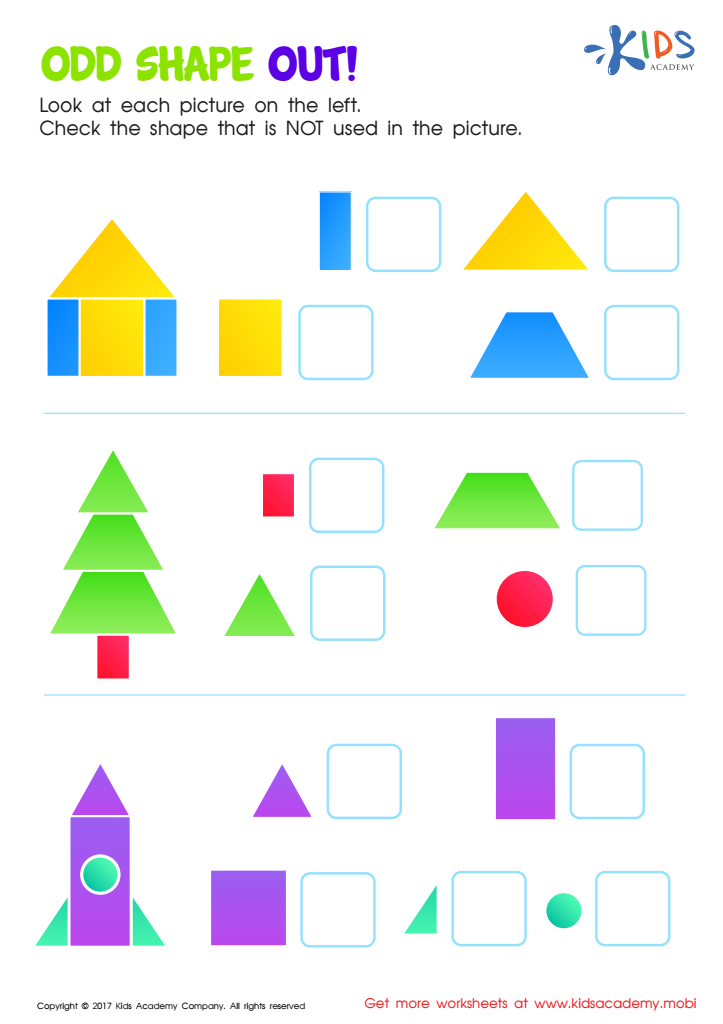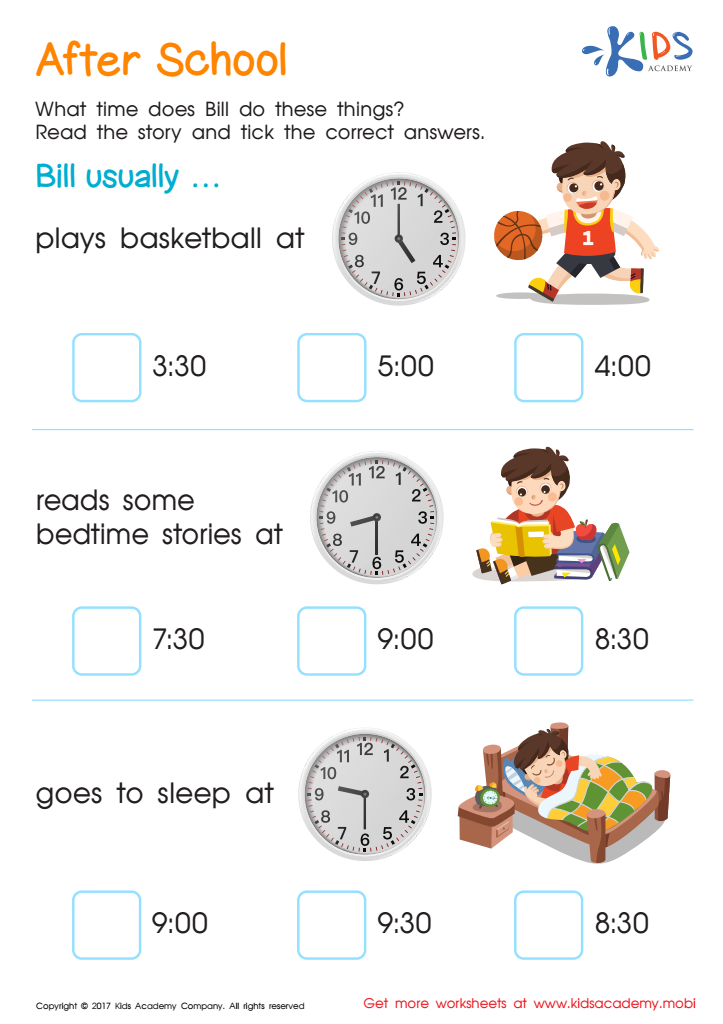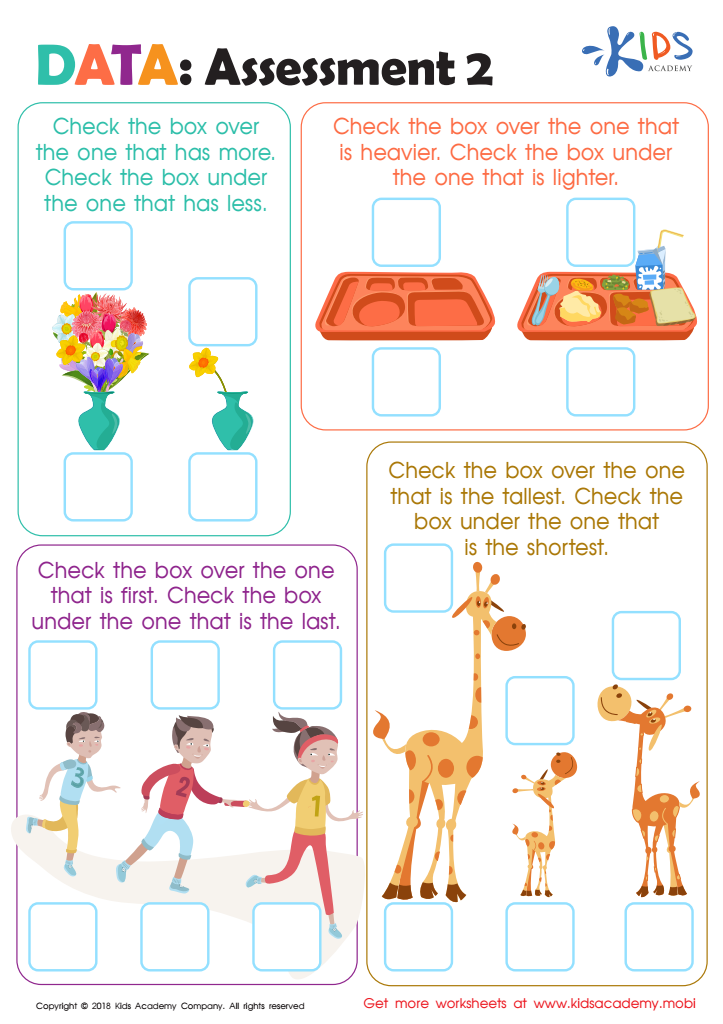Analytical thinking Math Worksheets for Ages 4-7
5 filtered results
-
From - To
Foster critical thinking and problem-solving skills with our Analytical Thinking Math Worksheets for Ages 4-7. These engaging and educational activities are designed to enhance young minds by promoting logical reasoning, pattern recognition, and an understanding of basic mathematical concepts. Children will enjoy solving puzzles, sequencing numbers, and identifying shapes, all crafted to build a solid math foundation. Our worksheets are perfect for home or classroom use, supporting early learners in developing the cognitive skills essential for academic success. Download now from Kids Academy and make math learning fun and effective for your little mathematician!


The 5 Sense Scientist Worksheet


Odd Shape Out Worksheet for Grade 1


Logic Game Sorting Worksheet


After School Time Printable


Data: Assessment 2 Worksheet
Analytical thinking in math for children aged 4-7 is crucial because it lays the foundation for problem-solving and critical thinking skills essential for future academic success and lifelong learning. At this developmental stage, children are naturally curious and absorb new information quickly. Introducing them to mathematical concepts in an analytical manner helps them understand relationships between numbers, recognize patterns, and develop logical reasoning skills.
Fostering analytical thinking through math encourages young learners to approach problems methodically, think outside the box, and come up with creative solutions. It shifts their mindset from rote memorization to deeper comprehension, enabling them to apply their knowledge in real-world scenarios. Skills developed at this stage, such as comparing, categorizing, and sequencing, are not only fundamental for more advanced math topics but also for subjects like science and literacy.
Moreover, engaging children in analytical math activities boosts their confidence and perseverance as they learn to tackle challenges step-by-step. It enhances their ability to focus, pay attention to detail, and make informed decisions. Early exposure to these skills equips children with a strong cognitive toolkit, empowering them to become proficient and enthusiastic learners in an ever-changing, analytically-driven world. Therefore, both parents and teachers should prioritize nurturing these abilities through thoughtful and interactive mathematical experiences.
 Assign to My Students
Assign to My Students




















